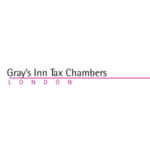Continue reading "Valuation: A winning formula?"
Valuation: A winning formula?

The appellant, Mr Palliser, disputed the valuation, for inheritance tax purposes, of a property in which his father’s estate owned an 88.4% share in the long leasehold and a third of the freehold title of the building it which it is located. HMRC had determined that the market value of the estate’s share at the date of the deceased’s death was £1,829,880. This determination was subsequently upheld; Mr Palliser appealed against those decisions, and submitted that the correct valuation should be £1,113,840.
The principal matter in issue was the correct interpretation of s.160 of...

Continue reading "Valuation: A winning formula?"
The appellants were the personal representatives of Mrs Kathleen Mary Watkins (the deceased) who died on 18 March 2006 aged 91 years and one day. On 21 December 2004, when she was 89 years and 9 months, the deceased settled her 50% interest in a Royal Skandia Collective Redemption Bond obtained for a premium of £340,000 (the settlement). The deceased’s sons David and Keith were appointed as trustees of the settlement.
The settlement was divided into two funds, ‘the settlor’s fund’ for the absolute benefit of the deceased and ‘the residual fund’ ...
E owned shares in a company involved in the manufacture of paper. E owned 17,131 ordinary shares and 53,476 A shares in the company. A charitable trust owned the majority shareholding in the company and the terms of the trust meant that it was unlikely that the company would ever be floated. The A shares were non-voting. The company’s articles restricted the sale or other transfer of the company shares.
The question at issue was the value of those shares as at 31 March 1982 for the purposes of Capital Gains Tax (CGT). E appealed against assessments in respect of CGT in the ...